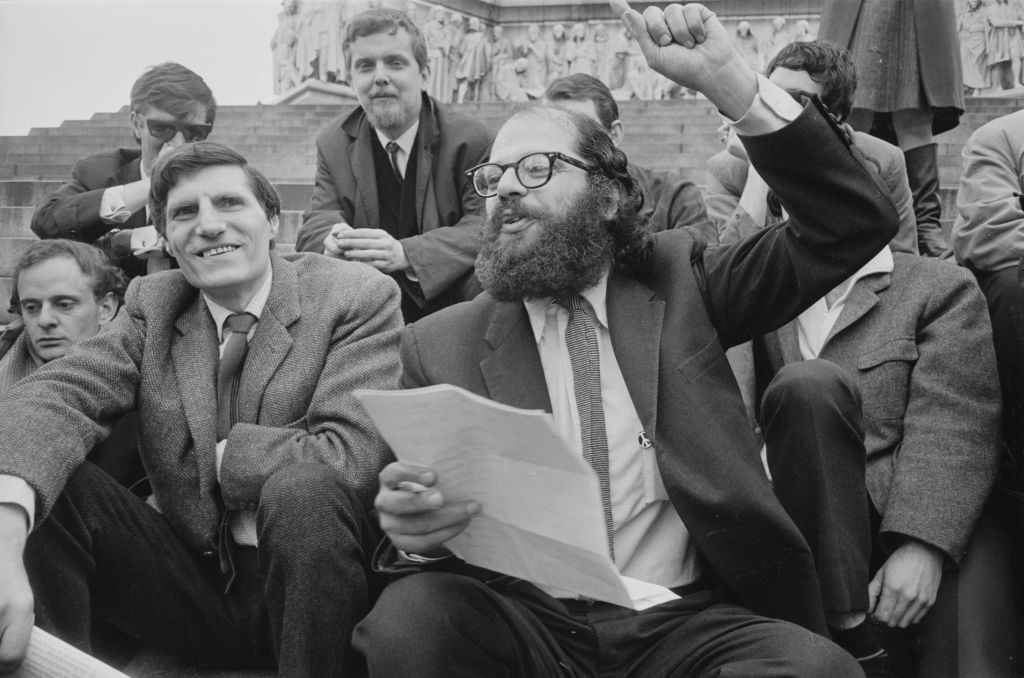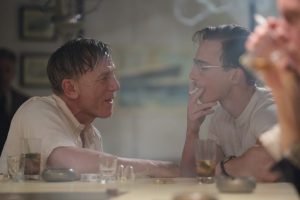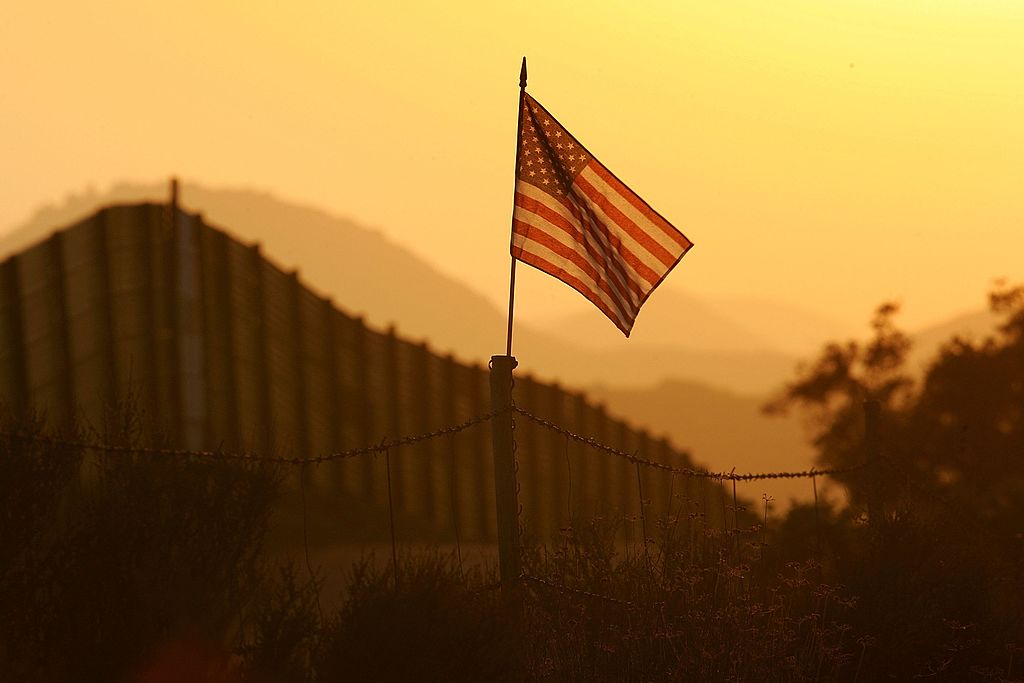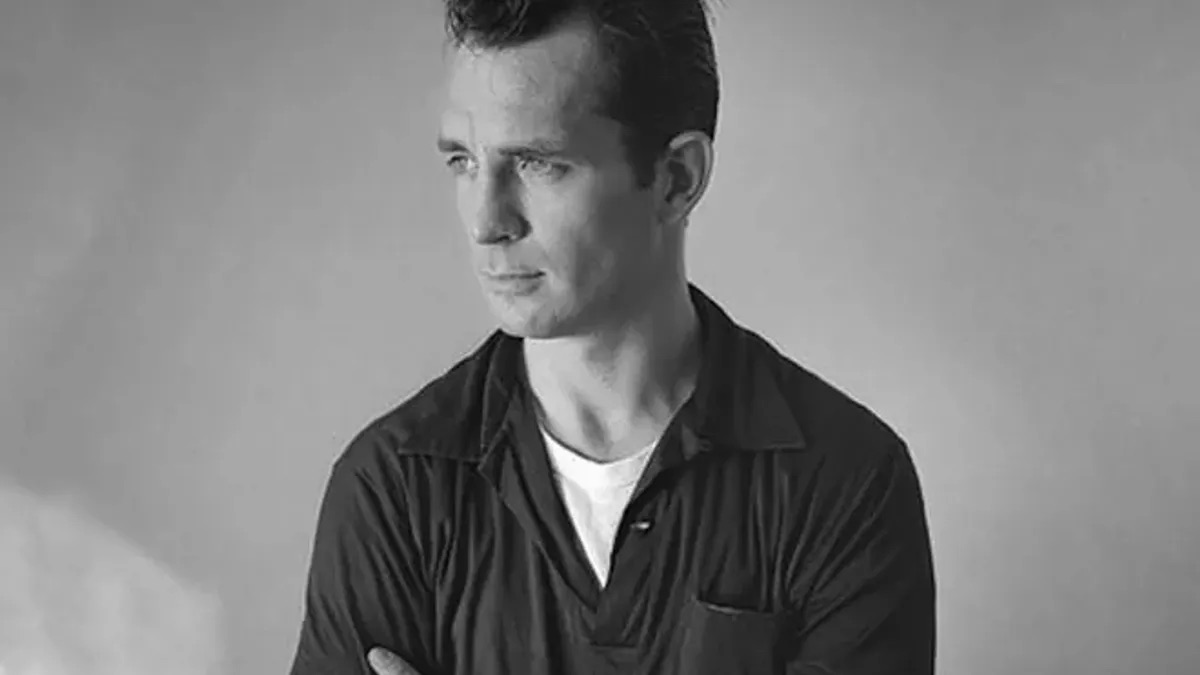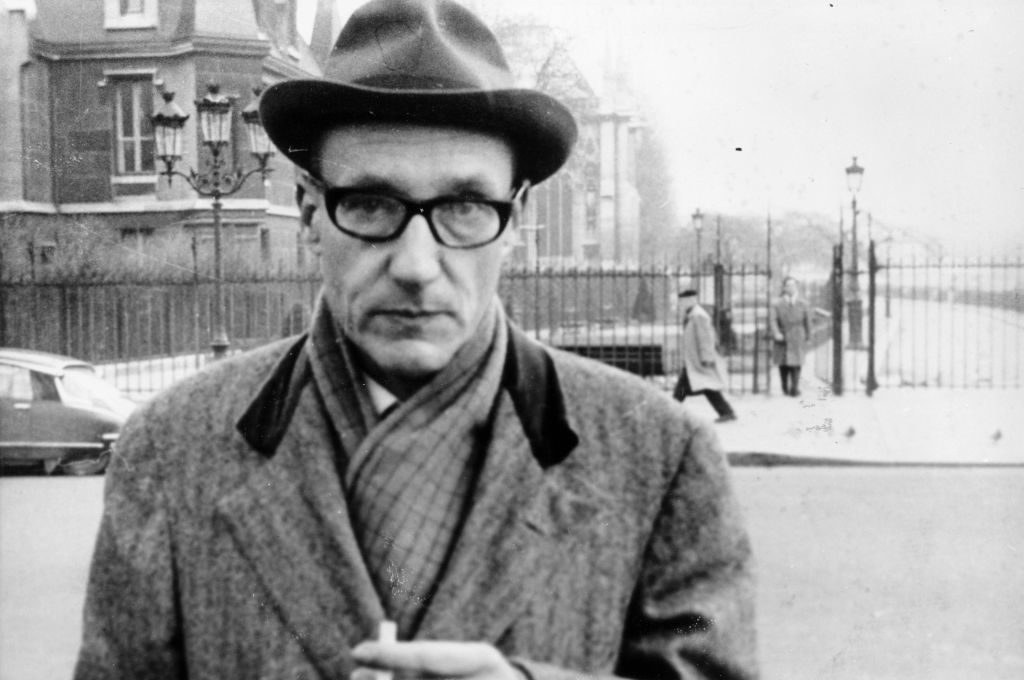Who was the most right-wing member of the Beat Generation?
The gentle Catholic-Buddhist Jack Kerouac, spontaneous-bop prosody prince of the Old Right, has the strongest claim. In 1952, shortly after finishing the novel that would be published five years later as On the Road, he argued for Robert Taft, “Mr. Republican,” for president, while his pal Allen Ginsberg was puffing up Cold Warrior and son of a robber baron Averell Harriman. (As usual in American politics, left was right and up was down, and those who see only blue and red were utterly befuddled.)
But William S. Burroughs, gun fancier and cadaverous grandson of the adding-machine inventor, gave Saint Jack a run for it. Burroughs, whose errors of judgment included killing his wife while trying to shoot a glass of gin off her head — hey, who hasn’t played a game of William Tell with a loaded handgun and a depressed spouse? — loved the hard-right polemicist Westbrook Pegler, the most cancelable pundit in the history of punditry.
Burroughs, degenerate though he may have been, had the gift of prophecy. In 1979, he forecast an America of “ever-increasing governmental control over the private citizen, not on the old-style police-state models of oppression and terror, but in terms of work, credit, housing, retirement benefits, and medical care: services that can be withheld. These services are computerized. No number, no service.”
Welcome to 2022, Billy B!
Yet the Bowery’s darling of the demimonde spotted a silver lining. For in his imagining, this prevised social-credit system “has not produced the brainwashed standardized human units postulated by such linear prophets as George Orwell. Instead, a large percentage of the population has been forced underground. How large, no one knows. These people are numberless.”
To be numberless. Isn’t that an American’s birthright?
My own staggeringly comprehensive ignorance of matters technological leaves me unable to answer the question of the moment: Is it still possible to be numberless in QR- code America?
Edward Abbey, irrepressible anarchist author of the classic Desert Solitaire (1968), wondered this, too. His early novel The Brave Cowboy (1956) included this key exchange between Jack Burns, the titular character, and a police officer:
“A man can’t walk around loose without any ID at all!… Where’s your papers?”
“My what?”
“Your ID — draft card, social security, driver’s license.”
“Don’t have none. Don’t need none. I already know who I am.”
Just don’t try to fly, board a train, find a job, or get a library card in modern America, Jack.
Abbey’s novel was filmed as Lonely are the Brave (1962), starring that old ham Kirk Douglas. Hollywood Ten communist Dalton Trumbo, who had spent just under a year in jail for refusing to rat out other communists — good for him — wrote the screenplay.
Trumbo is lionized today, but his courage was hardly leonine. He was a hack and a squealer. In 1939, when the Communist Party USA was opposed to intervention in what became World War Two, he published an anti-war novel, Johnny Got His Gun. But then Hitler betrayed Stalin, the CPUSA flipped to rabid interventionism, and the novel sank from sight, with the author’s approval. During the war Trumbo went so far as to report to the FBI the names of “right-wingers” who wrote to ask him to republish the novel. He later tried to gloss over this disgraceful episode by heaping the blame on those whom he betrayed. The deplorables were asking for it.
Edward Abbey had more guts in his left pinkie fingernail than Dalton Trumbo did in his whole party-line-contorted body. The screenwriter changed the thematically crucial crime around which the plot of Abbey’s story pivots from draft resistance — a brave act indeed in Cold War America — to harboring a family of adorable illegal immigrants. But then communists never did have a problem with the enslavement of young men, as long as it was for the right reasons.
Had Johnny Got His Gun been outright banned by the US government, Trumbo later said, he’d not have minded: “There are times when it may be needful for certain private rights to give way to the requirements of a larger public good.” You can fit an awful lot of repression under that general rule.
I have no doubt that the authorities whom Trumbo trusted have our numbers. But there are Abbeys and Beats among us still, and my money is always gonna be on them. Bet on the righteous, not the rats.
This article was originally published in The Spectator’s July 2022 World edition.



